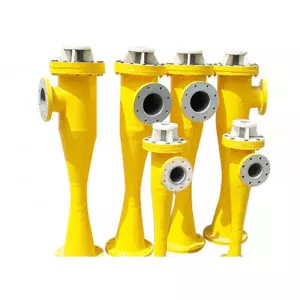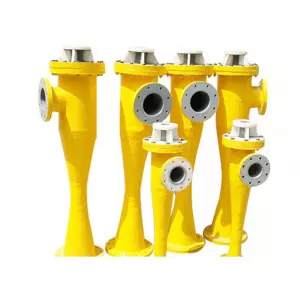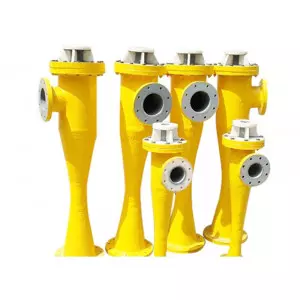Pollution Control System Manufacturering In Haryana
Details of Pollution Control Systems
How Pollution Control Systems Function in Industrial Settings. Pollution control systems are engineered to capture, neutralize, or eliminate harmful pollutants generated during industrial processes. These systems use physical, chemical, or biological methods to treat air, water, or solid waste emissions before release. Common mechanisms include scrubbing, filtering, oxidizing, or absorbing contaminants from process exhausts or discharge.
Major Features of Effective Pollution Control Systems
- Multi-stage filtration for particulate and gaseous pollutants
- High-efficiency scrubbers (wet or dry) to neutralize acidic gases
- Cyclonic separators or bag filters for dust removal
- Real-time emission monitoring and automatic control integration
- Modular design for easy scalability and maintenance
- Durable construction to withstand high temperatures and corrosive environments
Industrial Applications of Pollution Control Systems. These products are used in diverse industrial applications such as:
- Power plants and boiler exhaust management
- Chemical and pharmaceutical manufacturing
- Metal fabrication and welding units
- Pulp and paper processing
- Cement and aggregate production plants
- Paint shops and surface treatment industries
Advantages of Installing Pollution Control Systems
- Ensures compliance with environmental regulations (CPCB, EPA, etc.)
- Reduces workplace hazards and improves employee health
- Minimizes the environmental impact of airborne and liquid waste
- Enhances brand image through sustainable operations
- Optimizes production efficiency by controlling corrosion and fouling caused by pollutants
Types of Pollution Control Systems Used in Industries
Air Pollution Control Systems – Includes dust collectors, wet scrubbers, and electrostatic precipitators
Water Pollution Control Systems – Includes ETPs (Effluent Treatment Plants), STPs (Sewage Treatment Plants), and RO units
Noise Pollution Control – Includes silencers, acoustic enclosures, and vibration dampers
Solid Waste Handling Units – Includes compactors, shredders, and incinerators
Performance Monitoring and Automation in Pollution Control. Modern systems are equipped with advanced automation features like:
- Continuous Emission Monitoring Systems (CEMS)
- Remote diagnostics and fault alerts
- Energy-efficient motors and control panels
- Real-time data logging for audit and compliance reporting
Economic and Environmental Impact of Pollution Control Systems. Apart from regulatory benefits, these systems:
- Reduce production downtime due to equipment corrosion
- Help recover valuable byproducts from emissions
- Cut long-term waste disposal and treatment costs
- Promote green certifications and support ESG goals in manufacturing
Offered Product
Pollution Control Systems
We Supply Optimum Quality Pollution Control Systems. Our High Performance Systems Are Used In Controlling And Measuring Atmospheric Emissions, Gases And Other Allied Polluting Factors In Various Industries. Our Pollution Control System Comprises Products Which Are Manufactured Using Qualitative & Premium Material.We Design & Manufacture H.D.P.E. SCRUBBER, P.P. F.R.P. SCRUBBER, And Graphite Condenser. HDPE Heat Exchanger, Ejector System, Gas Recovery System. Our Pollution Control Equipm... Read morePollution Control Systems Manufacturers Nagpur
Cleaner Industries, Safer Environment Leading Provider Of Pollution Control Systems 2026We Are A Leading Provider Of Pollution Control Systems For Industries, Delivering Advanced Solutions That Reduce Emissions, Treat Wastewater, And Manage Solid Waste Efficiently. Our Systems Help Businesses Comply With Environmental Regulations While Maintaining Smooth Operations.Focused On SustainabilityWe Are Committed To Designing Solutions That Promote Environmental Sustainability. Our Systems Integr Continue
Pollution Control System Manufacturer In Kota
We Offer High-performance Pollution Control System Designed To Reduce Environmental Impact And Maintain Regulatory Compliance. These Systems Are Manufactured Using Corrosion-resistant Materials And Modern Engineering Practices To Ensure Effective Control Of Air, Water, And Industrial Waste Emissions. The Pollution Control System Supports Industries In Maintaining Clean And Safe Working Conditions. Our Systems Are Widely Used In Chemical Plants, Manufacturing Units, And Processing Industries For Continue
ANAL INDUSTRIES Vadodara
Engineered Systems For Air And Emission ManagementAnal Industries Manufactures And Exports Pollution Control Systems Built For Reducing Airborne Contaminants, Industrial Dust, Chemical Fumes, And Gaseous Pollutants. These Systems Are Manufactured Using Corrosion-resistant Ducting, High-capacity Scrubbers, Reliable Blowers, And Electrostatic Or Wet Filtration Components. Built To Meet CPCB Guidelines, Our Units Are Tailored For Continuous Operation Across Diverse Process Environments.Modular Continue




